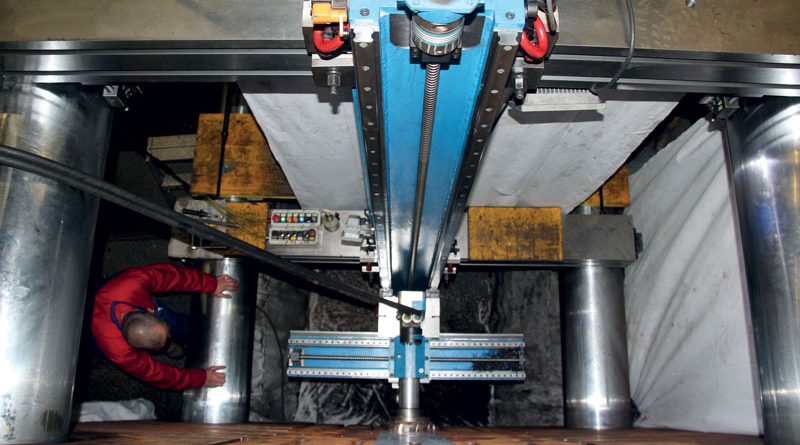Maintenance On Site for Die Casting Machinery
Mechanical machining on the spot cuts down on maintenance times and costs for large die casting machines, as Giovanni Capizzi, owner of the Alcap mechanical workshop, explains
by Alberto Pomari
“On site machining” normally pertains to shipyards, offshore oil rigs and heavy engineering in general, where the large sizes involved make it very difficult to disassemble and carry the component requiring maintenance to the manufacturer’s or repairer’s workshop. Alcap, based in Bedizzole (near Brescia) is a mechanical workshop specialized in on-site mechanical machining, which for more than twenty years has successfully applied this principle even to the maintenance and repair of die casting machines. As Giovanni Capizzi, Alcap’s owner, explains, the range of precision machining operations which can be carried out on site, on the client’s premises, is very wide, which allows to cut down on maintenance times and overall costs. “Machining on site on die casting machines”, Capizzi explains, “consists mainly in milling and flattening of the machine’s platens, in the reconstruction of the site of the container holder, of T-slots and die-clamping housings, covering platens with welded stainless steel as a protection from corrosion and wear. It is also possible to carry out radical action on the clamping system with toggle: boring of toggle links and of any ovalized hole, liquid nitrogen freezing of bushings, improvements such as the change of centralized lubrication with the “point-to-point” system and integral floating pins”.
Alcap can claim experience on all these machining activities on presses with clamping force from 400 to 4200 tons, made by all main manufacturers (Müller Weingarten, Frech, Bühler, Idra, Italpresse, UBE, Litostroj, Colosio, Maico, OMS, and so on), carried out at the industry’s main foundries, both in Italy and abroad. To mention but a few: ZF, Trimet, Mercedes Benz in Germany, Seat in Spain, Automobile Dacia in Romania, Ljunghäll in Sweden, Endurance Overseas, Shiloh, Alupress, TMB, Friulpress, Metalpres Donati in Italy.
High-performance mobile work stations
Alcap generally uses modular mills for heavy removal with three or more axes, with or without CNC, with various hydraulically and electrically operated spindles, large and small, which ensure the utmost accessibility and precision in machining.
Machining on site, besides being effective, also provides advantages in terms of lower costs, reduced machine downtimes and simpler management of the order. Giovanni Capizzi provides a practical example: “Milling the platens of a 400-ton machine in the traditional way means, first and foremost, having to disassemble the platens, that is, removing the tie bars (with the possible inconvenience of blocked nuts), disassembling the injection anchor bars, retracting pins, disassembling the doors, cables and hydraulic plant from the platens and finally completely disassembling the toggle unit. After disassembling all of the peripheral equipment, such as the lubricator and exhaust fume extraction hood, the platens must be taken to the workshop for milling, considering the lead times due to the workload of the machine tools. Having restored the geometry of the platens, all of the repaired components must be taken back to the plant and reassembled on the machine along with all of the peripheral equipment”. This is therefore a demanding task which, unless unforeseen circumstances arise, requires at least 14 days and has a cost which may vary with respect to the original estimate depending on such issues during the process as blocked columns which might need to be cut and welded, and so on.
“With on-site machining”, Capizzi explans, “all the client needs to do is stop the die casting machine, disassemble the mould and prepare the overhead crane or lifting equipment to assemble our mill. We deal with everything else, with our specialized technicians and without involving the client’s personnel, allowing production to resume in a matter of a few days. Alcap provides all the equipment, the cost of the work is defined in advance and remains unvaried, without additional costs.”
On-site machining and predictive maintenance
The larger the machine, the greater the saving. Milling the platens of a 2500-ton press with a traditional method, apart from higher costs for the clients and the use of their own personnel, implies production downtimes of at least 21 days, while milling on site does not involve the clients’ personnel and production downtimes are limited to five days, sometimes even less. The convenience of on-site machining is even greater when it comes to repairing the toggle unit, where production downtimes with traditional repair work add up to about two months, compared to one month with on-site machining. This approach is also an opportunity to verify the general state of the machine and its peripheral equipment, and to program preventive maintenance based on these checks. Specialized workshops such as Alcap may therefore offer their services as a maintenance partner to keep the machine park efficient. Of course this takes constantly updated experience, technical capabilities, equipment and machine tools and a deep knowledge of the die casting industry. If in spite of its advantages only few Italian foundries resort to on-site mechanical machining, this is probably not due to a lack of trust in this type of activity as much as to lack of really qualified, equipped and reliable operators.

